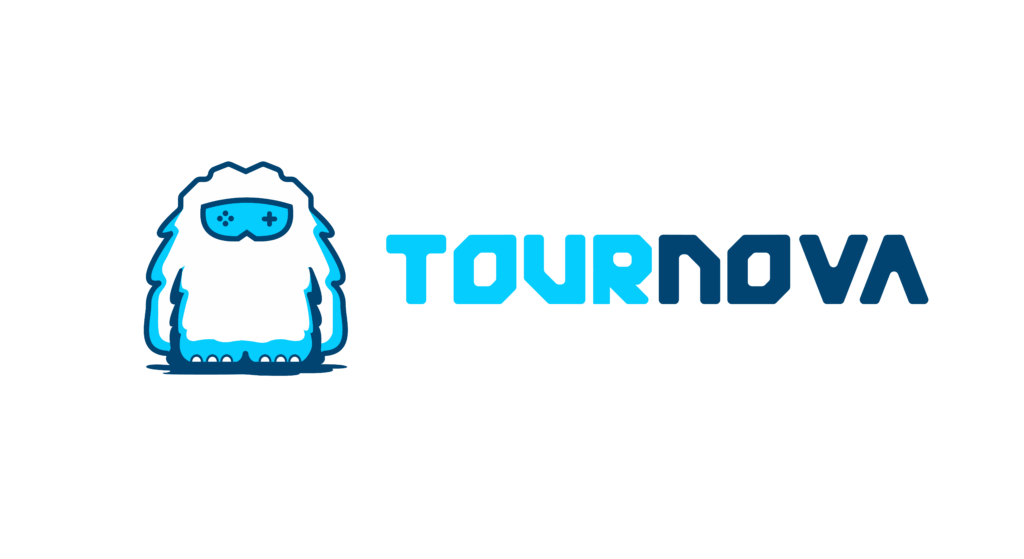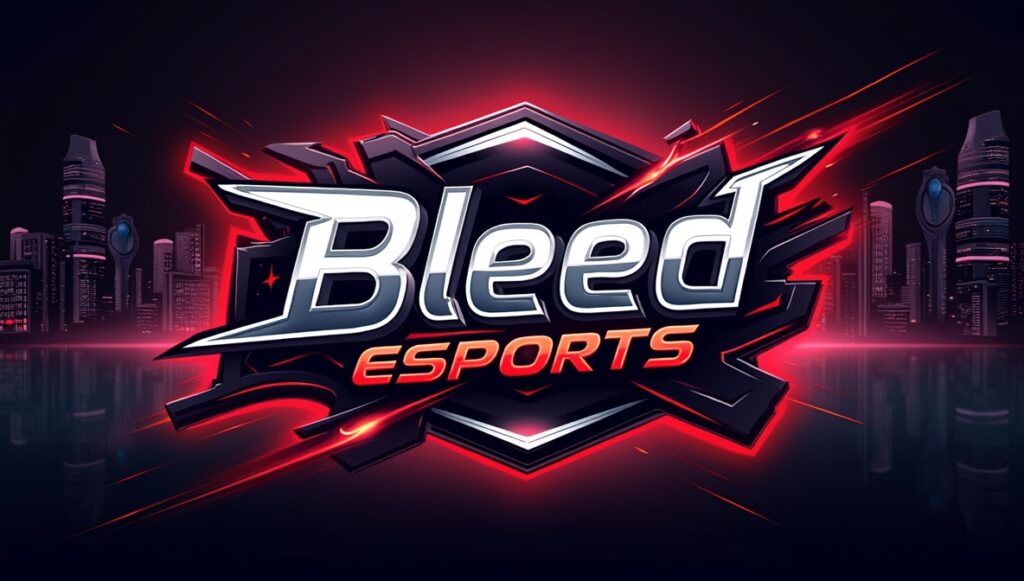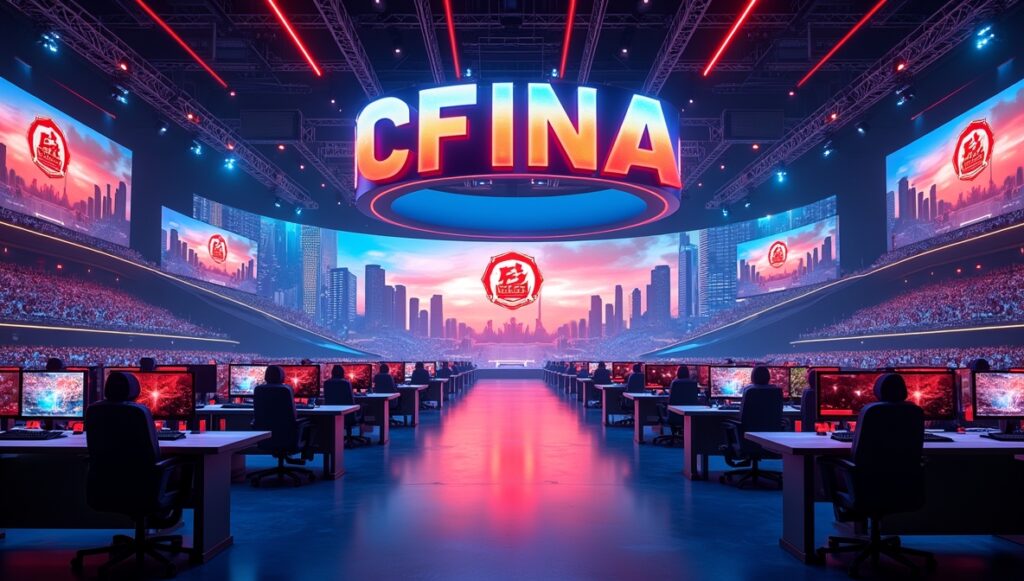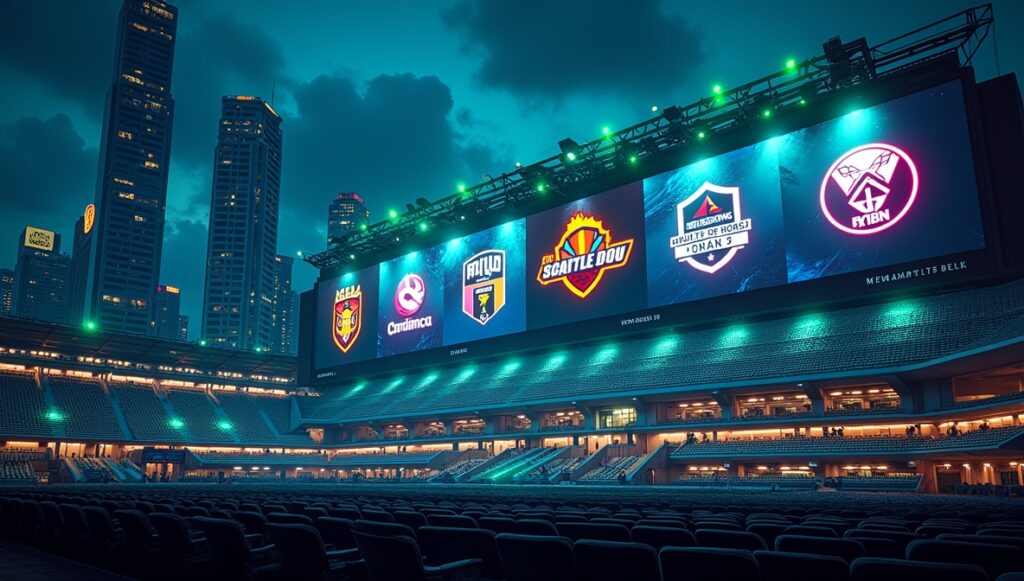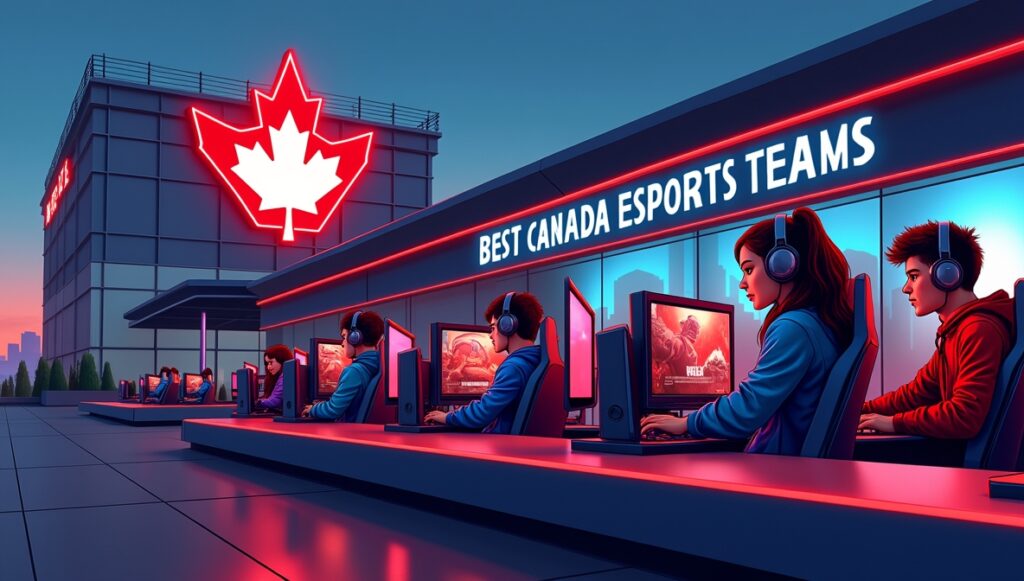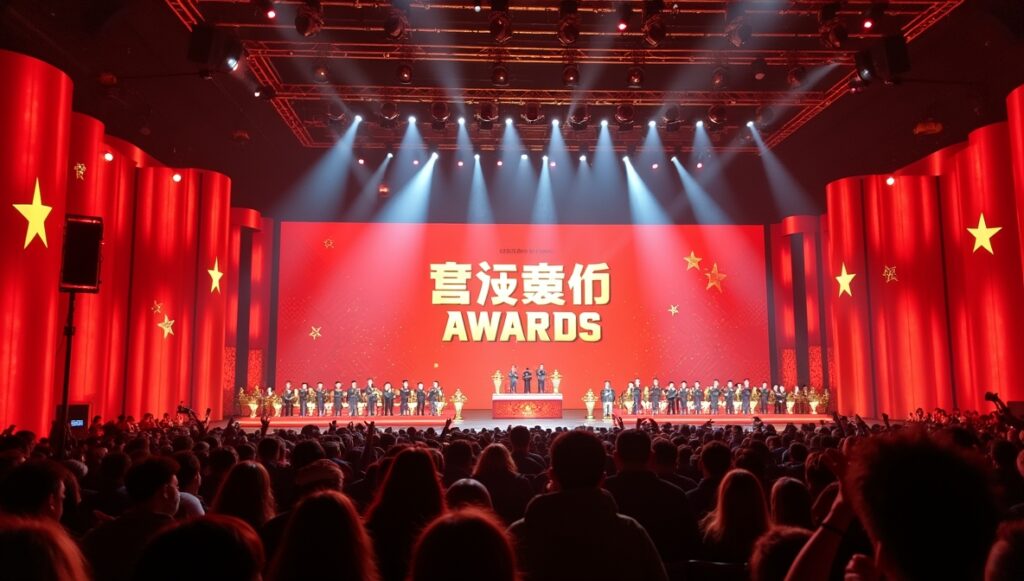Imagine stepping into an arena, not filled with the clamor of cheerleaders and mascots, but the electric energy of keyboards clacking and digital avatars battling it out on-screen. This is the world of esports gaming—a thrilling universe where video games transcend casual fun and morph into intense competitions. Unlike traditional sports, esports breaks free from physical limitations and gathers players from around the globe to compete virtually.
This raises the question: ‘What is esports gaming?’ What truly sets it apart is its rapid growth, driven by accessibility and the boundless creativity of its digital landscapes. This article will delve into what makes esports gaming a unique and captivating global phenomenon, especially for newcomers eager to dive in.
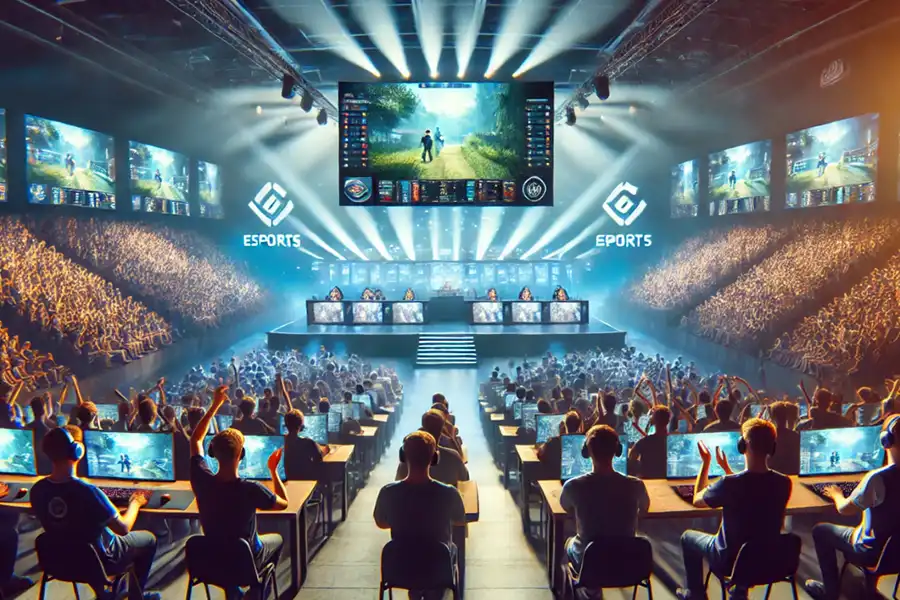
Understanding Esports: A Beginner’s Guide
What is Esports? Breaking it Down for Newcomers
Esports, short for electronic sports, refers to organized competitive video gaming. Whether it’s the strategic brilliance of League of Legends or the fast-paced action of Counter-Strike: Global Offensive, esports offers something for everyone. For a newcomer, think of esports as the Olympics of gaming—where strategy, dexterity, and teamwork are showcased on a grand stage.
Essential Esports Terms Every New Player Should Know
To get started, you’ll encounter some key terms in online gaming; Theses terms are not exclusively used in Esports. “Noob” refers to beginners, while “GG” signifies a “good game.” Understanding phrases like “meta” (the most effective strategies currently in play) and “nerf” (reductions in a game’s elements to balance gameplay) is crucial.
Esports’ Unique Blend of Strategy and Real-Time Action
Esports seamlessly combines elements of traditional sports with the thrill of real-time action and strategic depth found in gaming. While athletes in traditional sports hone physical skills, esports players perfect hand-eye coordination, reflexes, and strategic thinking. Understanding these nuances helps newcomers appreciate the complexity involved in mastering a game.
Developing Skills and Strategies
Beginners entering the esports arena can benefit from dedicating time to learning game mechanics and strategies. Watching top players provides insights into advanced techniques and positioning when we talk about what is esports gaming. Online tutorials and community forums offer guidance, turning daunting tasks into manageable steps. By continuously practicing and seeking feedback, newcomers can steadily climb the competitive ranks.
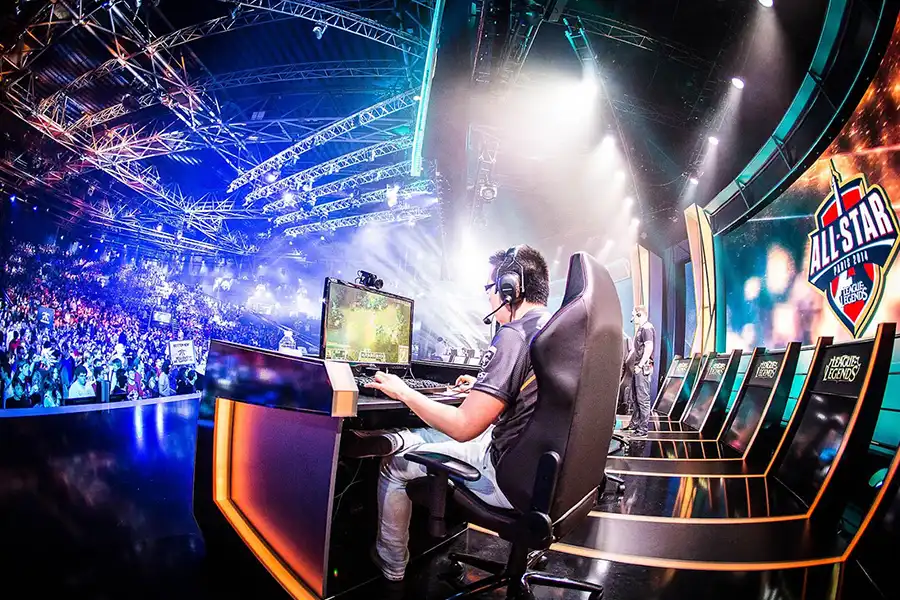
How Esports Games Work: Key Features and Formats
Diverse Game Genres
Esports span across various genres, each offering a unique experience. Multiplayer Online Battle Arenas (MOBAs) like League of Legends emphasize team play and strategy, while FPS games like Overwatch focus on quick reflexes and accuracy. Understanding these differences allows new players to find their niche, whether they enjoy team coordination or individual prowess.
Intricate Ranking Systems
Most esports games incorporate intricate ranking systems to ensure fair matchmaking. Systems like ELO ratings in games such as Chess or tiered ranks in games like StarCraft II help maintain competitive balance. For newcomers, recognizing the significance of these ranks can motivate improvement and track progression over time.
Read More: How to get into Esports Tournaments and Teams
Top Esports Titles and What Makes Them Popular
Titles like Fortnite captivate with their battle royale intensity, allowing 100 players to compete until one remains. Then there’s League of Legends, celebrated for its complex strategic gameplay and massive, supportive community. Games like Call of Duty hold their allure through gripping storylines and dynamic tournament scenes. Each game’s popularity stems from unique gameplay mechanics and vibrant communities that draw players in repeatedly. In regards to what esports gaming is, these games are listed below:
- Fortnite’s Global Phenomenon: Fortnite stands out for its dynamic gameplay that combines building mechanics with combat, creating a unique skill ceiling that attracts players of all ages. Its frequent updates and events keep the game fresh and engaging, cultivating a massive, loyal fanbase that thrives on innovation and community involvement.
- League of Legends’ Strategic Depth: League of Legends captivates players with its intricate strategies and diverse champion roster. The game’s ecosystem, consisting of professional leagues and fan-driven content, ensures continuous engagement. New players often find joy in discovering champions and refining strategies, fueled by an active community that shares tips and builds.
Beyond Playing: Career Paths in Esports
Esports offers more than just a path to professional play. Consider coaching, where influencing strategies can be just as rewarding as executing them. Game analysis allows individuals to use analytical skills to dissect and improve gameplay. Content creation, such as streaming or writing, provides platforms to share insights and personal gaming journeys. Event management is another thrilling avenue, overseeing tournaments that become part of esports history.
- Content Creation and Streaming: Content creation has become a lucrative aspect of the esports industry. Platforms like YouTube and Twitch enable gamers to share their experiences, tutorials, and live streams. Successful creators build engaged communities and can earn through sponsorships and ad revenue, blending passion with career growth.
- Event Management and Production: Behind every major tournament is a team dedicated to organization and production. From logistics and venue setup to live broadcasting, event management skills are in high demand. Aspiring professionals can begin by volunteering at local events and gaining experience and connections that lead to careers in larger esports operations.

Read More: How to Join an Esports Team and Compete Like a Pro
Essential Gear and Tech for Esports Beginners
Diving into esports requires some essential kit regarding the question of what esports gaming is. A powerful PC setup with a responsive keyboard and gaming mouse enhances performance. Headsets provide immersive sound quality and clear team communication. Software like Discord facilitates team strategy discussions and community engagement. Setting up your gaming space with the right tech transforms your gaming experience, making casual and competitive gaming more enjoyable.
- Choosing the Right Monitor: A high-refresh-rate monitor can significantly enhance gaming performance by providing smoother visuals and reduced motion blur. Monitors with refresh rates of 144Hz or higher are preferred among serious gamers, offering a competitive edge in fast-paced games.
- Customizing Your Setup: Creating a personalized gaming setup not only improves performance but also enhances comfort. Ergonomic chairs, adjustable desks, and proper lighting can reduce strain during long gaming sessions. Customizing key bindings and mouse sensitivity further refine gameplay efficiency, turning a simple hobby into a professional endeavor.
- Building Lifelong Connections: Esports communities are vibrant hubs of interaction and support. Joining a team or club can lead to lifelong friendships, built on shared interests and competitive spirit. These communities often host offline meetups, turning virtual connections into real-world camaraderie.
- Engaging with Events and Conventions: Beyond online interactions, global conventions like TwitchCon and BlizzCon offer fans immersive experiences with game previews, tournaments, and panels. Attending these events allows enthusiasts to connect with developers, professional players, and fellow fans, deepening their involvement in the esports culture.
The Community and Culture of Esports
At its core, esports thrives on community. Streaming platforms like Twitch connect fans, allowing them to engage with their favorite players live. Social media amplifies this interaction, fostering vibrant discussions and communities. Getting involved is easy—join forums, participate in local tournaments, or simply watch and support players and teams you admire. This lively culture is about sharing passion and camaraderie in a digital age.
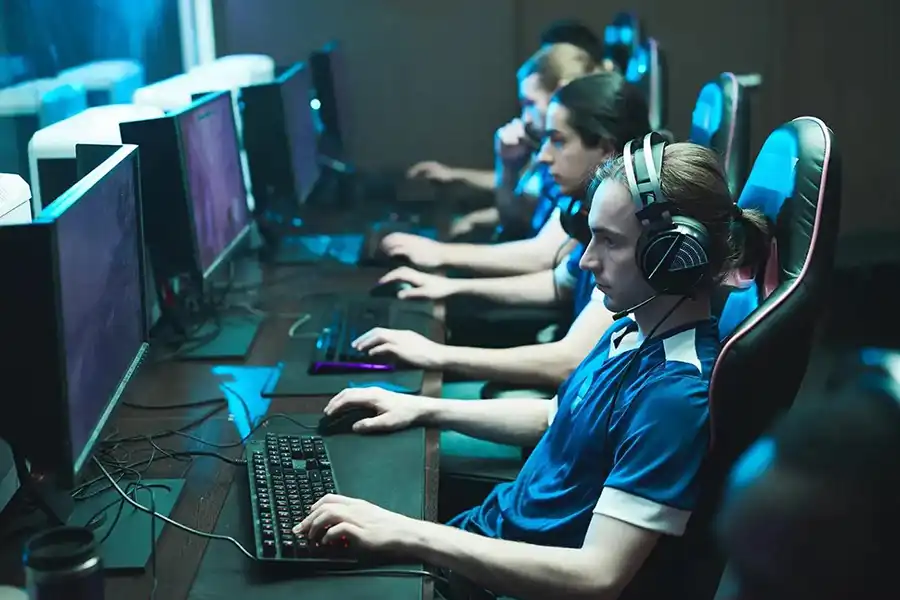
Challenges in Esports: From Mental Health to Industry Risks
Behind the excitement lie significant challenges and talking about what is esports gaming, it’s no different than any other sport when it comes to the thrills of the game. Mental health concerns, such as burnout, affect players due to intense training schedules. Team dynamics can also introduce stress, especially in high-stakes competitions. Industry risks include the need for regulation to ensure fair play. Addressing these issues is crucial for maintaining a healthy, sustainable esports environment.
Balancing Practice and Well-Being
Aspiring esports athletes face the challenge of balancing intense practice schedules with mental health. Strategies such as setting time limits, taking regular breaks, and engaging in physical activities are crucial for maintaining well-being. Organizations increasingly recognize this, providing resources and support systems for players.
Addressing Burnout and Pressure
Burnout is a prevalent issue in esports, driven by competitive pressure and demanding schedules. Open communication and professional support are essential for players to navigate these challenges. Industry leaders are working to create healthier environments, allowing talent to thrive without compromising mental health.
What’s Next for Esports? Trends and Predictions for 2024 and Beyond
As we look ahead, new technologies promise to reshape esports. Virtual reality (VR) is poised to offer immersive experiences, possibly reinventing game genres. AI-driven analytics could provide deeper insights into gameplay strategies. Esports academies are emerging, offering structured pathways for aspiring players. Keeping an eye on these trends will help newcomers stay engaged with the evolving landscape of esports.
- Embracing New Technologies: As technology evolves, so does esports. Virtual reality (VR) and augmented reality (AR) offer transformative potential, promising more immersive gaming experiences. These innovations could introduce entirely new genres and redefine player interaction, expanding the boundaries of what’s possible in competitive gaming.
- Global Expansion and Inclusivity: Esports continues to grow globally, with emerging markets in Asia, South America, and Africa. This expansion brings opportunities for diverse talent and unique cultural influences to enrich the esports landscape. Initiatives promoting inclusivity aim to make esports accessible to all, ensuring the industry’s growth is both sustainable and equitable.
By weaving these elements into our understanding of what esports gaming is, we not only enrich our appreciation but also prepare for its exciting future. This dynamic world holds endless possibilities for players and enthusiasts alike, inviting everyone to be part of its unfolding story.
Read More: How Hard Is It to Enter Esports?
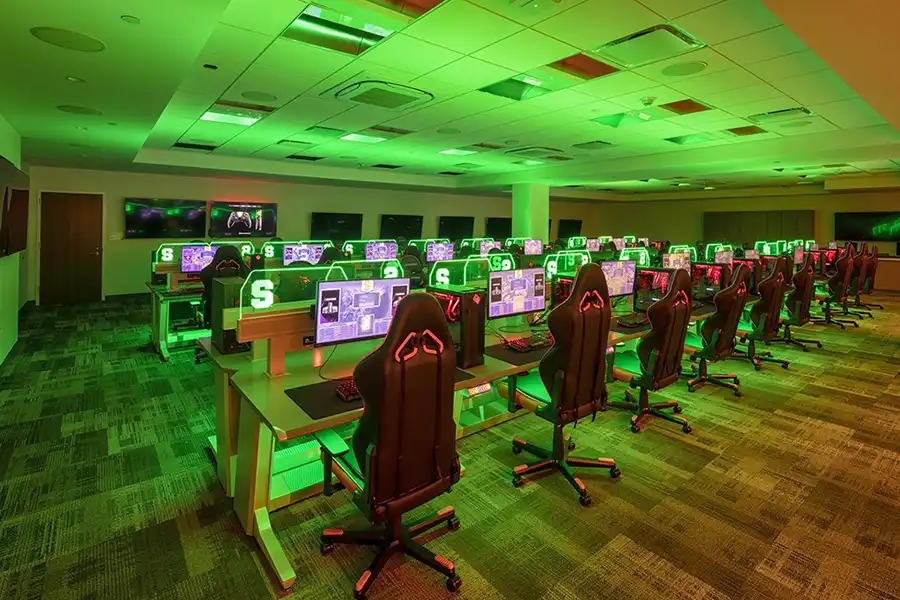
Conclusion
Esports gaming, with its dynamic and inclusive nature, continues to captivate millions worldwide. Whether you’re a player, a fan, or someone curious about the industry, the opportunities within esports are as expansive as the games themselves. As newcomers with many questions regarding what is esports gaming, we encourage you to embrace the culture, explore different paths, and become part of this vibrant global community. The journey promises excitement, challenges, and the chance to be a part of something truly revolutionary.
FAQ
What equipment is a must-have for starting in esports?
A customizable gaming mouse and a mechanical keyboard can significantly boost performance due to their precision and responsiveness.
How can I find local esports communities to join?
Explore social media platforms and forums like Reddit where gaming communities often post about local meetups and events.
What are the potential earnings for careers in esports beyond being a player?
Careers such as coaching, content creation, and event management can offer lucrative opportunities, often depending on the experience level and popularity.
